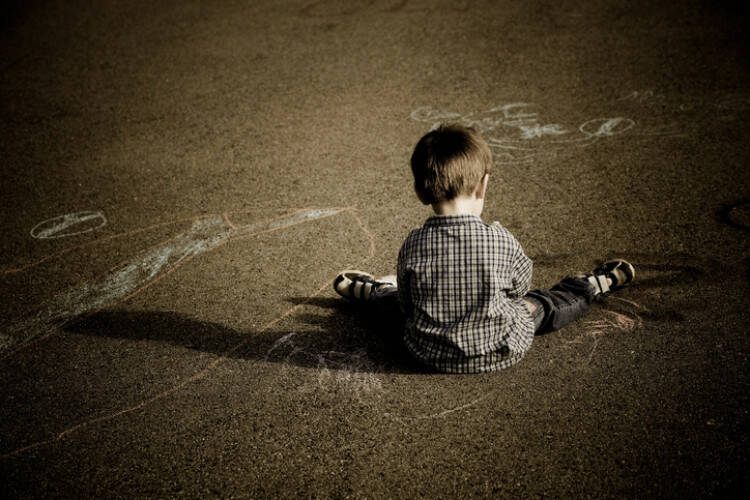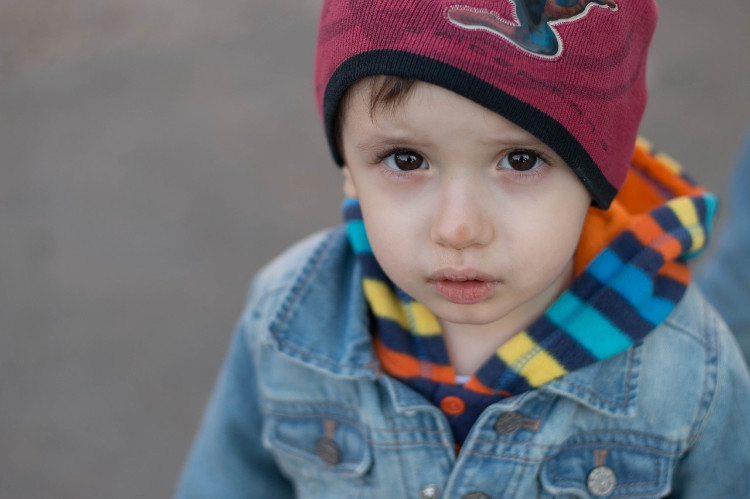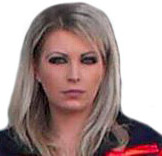What is Asperger's Syndrome? Living with Asperger's: does your child have it?

Asperger's syndrome is a collective name for disorders at the level of social interaction, communication and behaviour. It can currently be categorised as a separate disorder classified under autism spectrum disorders.
Article content
What is Asperger's and what is life like with Asperger's (in childhood or adulthood)?
How does it manifest and what can you expect?
The areas affected are the same as in autism, but the level of disability is different and has its own specific features. These differences greatly affect the life of the child or even the adult and make it "different".
The level of intelligence tends to be normal to high.
What is Asperger syndrome?
The term Asperger's Syndrome was introduced in 1981 by British physician and psychologist Lora Wing, who also wrote many publications on the disorder, including autism.
The disorder was named after its discoverer, the Viennese professor of medicine and paediatrician Hans Asperger (1906-1980). He observed a group of his child patients with normal and higher IQs, with some behavioural deviations from the norm.
These children were less physically dexterous, communicated less and communicated strangely. They had the introverted behaviour of a loner. Their interests showed a certain limited stereotype and their repertoire of interests and activities was repetitive.
He initially called this "set of peculiarities" "autistic psychopathy".
Autism spectrum disorder
Asperger syndrome is an autism spectrum disorder manifesting qualitative impairments in social interaction, communication and behaviour as in autism with a normal intelligence quotient, in some cases even high.
This syndrome is heterogeneous. It is also called social dyslexia or social learning disorder.
It significantly affects the way in which the child interacts with the environment. It makes it impossible for the sufferer to establish relationships with other people, which may even result in the individual being isolated from the collective and in the consolidation of introverted behaviour. These problems do not disappear but persist into adulthood.
Intact intelligence gives people with this syndrome the opportunity to live at the level of a normal healthy person, but for others with the behavior of a "weirdo".
Closedness to the outside world, inability to be socially active, and lower communicative ability tend to be the only shortcomings of an otherwise normally functioning individual in adulthood.
How does Asperger's syndrome manifest itself?
The manifestations of this mental disorder are varied. They occur on multiple levels simultaneously and do not manifest themselves identically in everyone. Due to normal to higher intelligence, symptoms become less pronounced and visible. This makes early diagnosis of the disorder difficult, especially in children who are just beginning to learn many things.
Hans Asperger himself used to call his young patients "little professors".
Often the final diagnosis is not made until years later, in some cases it remains hidden forever. The disease affects boys more often than girls, by a ratio of 3:1.
Disorders of social interaction (interpersonal relationships)
Most children with Asperger's syndrome prefer to be alone, do not have many friends and do not understand the behaviour of their peers. They deliberately avoid people. But this is not because they want to be alone. On the contrary, they suffer greatly from it.

They try to be social and struggle with the incomprehensible outside world. They fail to do so, which often makes them sad. In society they feel "different" from others.
They do not understand others' behaviour, gestures, looks and body language. These social relationships become incomprehensible to them, leading to feelings of abandonment, helplessness, sadness and withdrawal.
In childhood, it is precisely because of the incompetence of friends and often ridicule or bullying that they stand out from the group and prefer adult relationships.
In many cases, the child becomes directly dependent on the relationship with one of the parents. The parents become the only refuge for them. Therefore, the role of the mother or father is crucial in early diagnosis.
In adulthood, on the other hand, they feel more comfortable in the company of young children. They are socially isolated and their life is passive without motivation. They do not feel comfortable in society, and certain situations also make them feel uncomfortable.
The more unpleasant feelings and experiences they have, the more introverted they become. The introverted way of life deepens and over time they lose most of their contact with the outside world.
They often suffer from social phobia - fear of society, social events. They avoid places with high numbers of people. Social events cause them stress, negative feelings, fear and anxiety.
In addition to social phobia, some individuals may have other phobias such as:
- anthropophobia (fear of people)
- agarophobia (fear of open spaces)
- autophobia (fear of loneliness)
- bacteriophobia (fear of germs)
- catagelophobia (fear of other people's teasing)
- cherophobia (fear of entertainment)
- chiraptophobia (fear of touch)
- decidophobia (fear of making decisions)
- didaskaleinophobia (fear of going to school)
- enosiophobia (fear of criticism)
- claustrophobia (fear of enclosed spaces)
- ochlorophobia (fear of crowded spaces)
- and many other hard-to-explain phobias.
Disorders at the level of social aspects of communication with the outside world
The speech development of these children is not delayed, but age-appropriate. Communication skills are at a good, often very high level. They have a good vocabulary. They can speak fluently, have no problem speaking quickly or understanding what is being said.

Their problem lies in the social aspects of communication and is closely related to the social interaction described above. The lack of communication is closely linked to the lack of friends, which in early childhood manifests itself in poor communication.
They are unable to initiate, carry on and sustain ordinary conversation about everyday (uninteresting to them) matters. However, they have no problem with more complex conversation even on a specialist topic, especially if it interests them.
Thus, predominantly gifted children with higher IQs may appear stupid or incomprehensible to those around them and be the target of unjustified ridicule. They become aware of these differences as they grow older, thus deepening the isolation due to awareness of their differences.
When communicating with other people, they do not take into account whether the other person is interested and whether it is socially appropriate. They do not notice or care about the reactions of others. They rarely give space for feedback, do not let others finish talking and often jump in.
They cannot judge the appropriate moment to enter a conversation.
They themselves lead long monologues on their favorite topics without observing the disinterest of the other party. If they have a hobby or favorite subject in school, they can absorb an enormous amount of information on that topic and become a recognized expert on the subject.
However, the imaginary line between high expertise and fanaticism is very thin. It could be that they lose their interest more than expected.
Speech tends to be monotonous, as in reciting a poem, and they look away, especially in conversation. They have difficulty expressing themselves in the emotional sphere and in expressing feelings such as a kiss, a caress, an expression of affection, either verbally or in a non-verbal way. They favour logic at the expense of intuition and emotion.
Some have difficulty understanding symbolic or ambiguous expressions. They take some metaphors and jokes literally. This can lead to being attacked with ridicule among peers. They are confused by sarcasm, humour they do not understand.
Sometimes you may even wonder how a child can misunderstand such a simple and trivial thing. Intellectually, he is fine and sometimes excels.
Disorders at the level of perception and imagination
The level of knowledge of these children is directly high. They have not the slightest problem with the perception of facts, technical topics, mathematical tasks.

The same cannot be said about their perception of abstract things and their poor imagination. Children may have problems in school during art classes, religion, carnivals or school trips.
Children with Asperger's syndrome prefer the ways they have experienced so far and the lack of imagination should be seen as an inability to find alternative solutions to a problem.
Taking the child out of the norm leads to anxiety, tearfulness, depression and re-inhibition. Simply put: it makes the child feel uncomfortable and uncomfortable.
In the youngest children, this manifests itself in a preference for a routine. Examples include falling asleep with the same toy and not tolerating a new one, eating from the same plate and with the same spoon, or going to school the same way.
At a later age, this manifests itself in a predetermined schedule and adherence to it. When there is a sudden, unexpected change of plans, it upsets the older child just as it does the toddler, causing him discomfort and sadness.
Any change in life, such as a delay, a social event, or a change of residence, tends to be extremely stressful for individuals with Asperger's syndrome. Similar features are seen in people with obsessive compulsive disorder, but to a greater degree with more severe feelings about the change experienced.
The obsessive-compulsive type of behaviour tends to be a secondary feature in many children with Asperger's.
Their superior logical thinking, however, does not allow them to understand context as a healthy person does. Autistic people are more focused on details, environmental cues, which in turn a healthy person may not notice. They piece together the whole in their minds from these fragments after repeated mental analyses. The end result, however, has a higher final cost. Because of the constant focus on the thought, they lose concentration in school, in lectures, at work.
Autistic people have to logically and scientifically understand and figure out what a healthy person has understood from a signal or symbol (intuitively).
Can Asperger's Syndrome be cured?
There is no cure for Asperger's Syndrome. It is a developmental, genetic disorder (anomaly) in the right hemisphere. Those who are born with this condition will grow old with it.
The life of a person with Asperger's can be influenced by education and learning social interaction and proper communication. Children and people with Asperger's lead a full life despite the above. The age of puberty is at risk. Increased caution is needed to prevent frustration, isolation and loneliness from becoming the reason for the suicide of an internally sad child.
How can a diagnosis be made?
Due to the relatively normal onset of speech abilities at a reasonable age in a child, Asperger's syndrome is very difficult to diagnose at a young age.
Children in this age range do not differ significantly from their peers. The first signs are seen in preschool, when the child is first in a group. However, even these signs are not indicative of a definitive diagnosis of Asperger's.
For a definitive diagnosis, a history of impairment in all areas of the above triad that is observed in the child over a prolonged period of time is necessary. Usually, years is considered a prolonged period of time.
If the child's behaviour remains unchanged, with stereotyped behavioural patterns and isolation in the group, a visit should be made to the district doctor. The specific suspicions should be described to him and then a psychologist should be sought. After several sessions, the psychologist will either confirm or refute the diagnosis.
You may not have known:
As this is a brain anomaly, a SPET (single photon emission thompgraphy) is also possible. This clearly shows that the structure of the brain hemispheres is not in line. The right half of the brain is not the same as in healthy individuals.
What to do if your child has a clear diagnosis?
The number of children diagnosed with autism and Asperger's Syndrome is increasing enormously, but with the right approach to this condition, much can be reversed. Asperger's Syndrome is, however, not very noticeable.
Difficulties arise mainly in adolescence. The underlying problems in Asperger's syndrome, especially when the diagnosis is confirmed, are largely manageable. Many experts have established diagnostic criteria for Asperger's syndrome.
- The role of the parent is paramount. The child's attachment to one parent is often above standard. The parent is the person the child trusts and regards as an authority figure. If the child is given full attention from an early age or diagnosis, he or she can be helped to overcome to some extent the barriers and inhibitions associated with social interaction. The child needs to be taught to communicate correctly, especially by explaining repeatedly what is appropriate to say.
- Despite the problems with imagination, this point does not apply to all sufferers. Many Asperger's are writers, artists, poets, painters or musicians. They may also become renowned scientists or Nobel Prize winners.
- A skilled psychologist who has experience with children with Asperger's or autism also plays an important role. If the child develops a positive relationship with the psychologist, we have almost won.
- The psychologist directs the child on a professional level. If the child cooperates, this is the way to success. There are also special private schools. It is up to the discretion of the doctor and the psychologist to decide whether this school is suitable for the child or whether it is better for the child to attend a different school than the one he or she is attending.










